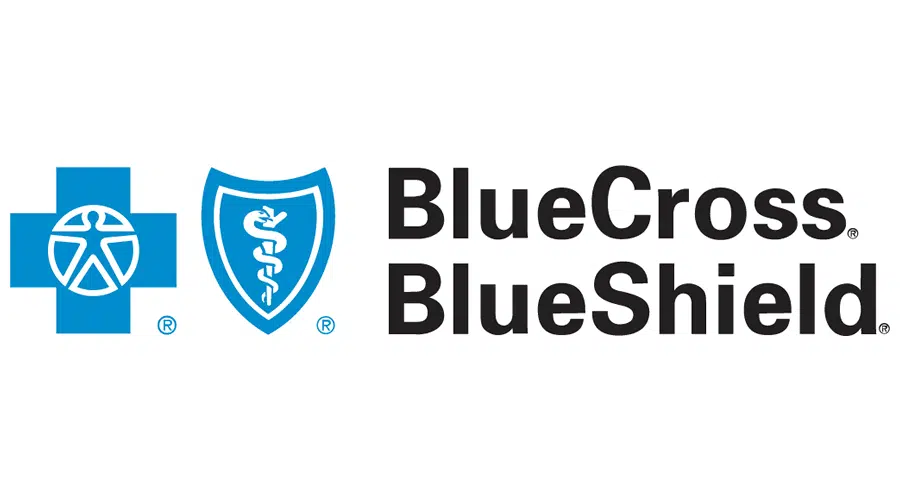Hormones play a crucial role in our overall health, influencing everything from mood and energy levels to physical development and reproductive function. Testosterone, in particular, is vital for various bodily functions in both men and women.
Imbalances in testosterone levels can lead to a myriad of health issues, ranging from decreased libido and fatigue to more severe conditions like hypogonadism or hormonal deficiencies. It’s not just about muscle mass or sex drive – testosterone affects bone density, mental clarity, and overall vitality. Therefore, ensuring access to appropriate treatment is pivotal for individuals facing hormonal challenges.
However, gaining access to necessary treatments like testosterone therapy often hinges on insurance coverage. Many individuals rely on their insurance plans, such as those offered by Blue Cross Blue Shield, to manage the costs associated with these essential medical interventions.
Understanding what an insurance plan covers, particularly in terms of specialized treatments like testosterone therapy, becomes crucial. It’s often a maze of policy specifics and approval criteria that individuals must navigate to receive the care they need.
This guide aims to shed light on Blue Cross Blue Shield’s coverage regarding testosterone treatment. By providing clarity on the factors influencing coverage, steps to determine eligibility, and potential alternatives or support options, readers can make informed decisions about their healthcare journey.
Recommended: Top 4 Signs That a Man Has Not Been Sexually Active
Moreover, it serves as a resource to empower individuals to proactively engage with their insurance providers, understand their coverage, and advocate for themselves or their loved ones when seeking testosterone treatment.
What is Testosterone Treatment?
Testosterone is a vital hormone primarily associated with male characteristics, but it’s present in both men and women. It’s produced in the testicles in men and in the ovaries and adrenal glands in women.
Testosterone isn’t solely about masculinity. It plays a crucial role in various bodily functions, including the development of muscle mass, bone density, distribution of fat, and the production of red blood cells.

Types of Testosterone Treatment
Testosterone therapy comes in various forms, including injections, patches, gels, and implants. Each form has its advantages and considerations regarding dosage, convenience, and potential side effects.
Testosterone treatment is often prescribed for individuals experiencing low testosterone levels due to conditions like hypogonadism, aging-related hormone decline, or other health issues impacting hormonal balance.
Benefits and Risks
Effective testosterone treatment can improve libido, mood, cognitive function, muscle mass, bone density, and energy levels in individuals with low testosterone levels.
However, like any medical intervention, testosterone therapy comes with potential risks and side effects, including acne, fluid retention, and in some cases, long-term concerns such as cardiovascular risks, particularly when misused or administered improperly.
Recommended: 10 Best Vitamins For Hormonal Acne
It’s crucial for individuals considering or undergoing testosterone treatment to do so under the guidance and supervision of a qualified healthcare professional.
The dosage, form, and duration of testosterone therapy should be tailored to each person’s specific needs and regularly monitored by a healthcare provider to ensure its safety and efficacy.
There are several misconceptions surrounding testosterone treatment, often leading to confusion or hesitation among individuals considering this therapy. Addressing these myths – such as exaggerated notions about aggression or unrealistic expectations of its effects – is crucial for informed decision-making.
Recommended: Can I Take Magnesium While Breastfeeding?
Ethical considerations also play a role in testosterone treatment. It’s essential to emphasize responsible use, ensuring that treatments are pursued for genuine medical needs and not solely for performance enhancement.

Understanding Blue Cross Blue Shield Coverage
Blue Cross Blue Shield (BCBS) is a federation of independent health insurance companies offering a wide range of insurance plans across the United States. BCBS plans vary by state and region, each offering distinct coverage options and policies tailored to the needs of the local population.
Types of BCBS Plans
BCBS typically offers various plan categories, such as Health Maintenance Organization (HMO), Preferred Provider Organization (PPO), and Exclusive Provider Organization (EPO). Each plan type differs in terms of coverage networks, out-of-pocket costs, and referral requirements.
The coverage levels for specific treatments, including testosterone therapy, can differ significantly based on the plan chosen by an individual or employer.
Coverage Limitations and Exclusions
BCBS plans may have limitations or exclusions related to testosterone treatment. These could include dosage limits, specific brands or formulations covered, or prerequisites like trying other treatments before approving testosterone therapy. Some plans might exclude coverage for certain conditions or uses of testosterone therapy deemed medically unnecessary or experimental.
It’s important to note that coverage for testosterone treatment can vary significantly between different BCBS plans. What is covered under one plan might not be covered under another, even within the same state or region.
BCBS policy documents, such as the Summary of Benefits and Coverage (SBC) or the specific plan’s policy manual, provide crucial details about coverage inclusions, exclusions, and limitations.
Given the nuances and differences between BCBS plans, people must review their plan documents thoroughly. Understanding policy specifics, coverage tiers, and any requirements for approval is essential when considering testosterone treatment.
Recommended: Knee To Chest Position In Labor: All You Need To Know
People seeking clarity regarding their BCBS coverage for testosterone treatment should directly contact their insurance provider or access online resources provided by BCBS for assistance. BCBS often offers customer service lines, online portals, or assistance programs that can help individuals navigate coverage inquiries and understand their options.

Does Blue Cross Blue Shield Cover Testosterone Treatment?
Blue Cross Blue Shield (BCBS) often covers testosterone replacement therapy (TRT) if it’s deemed medically necessary. However, coverage can vary based on the specific plan, policy, and the reason for the treatment. Typically, for BCBS to cover testosterone treatment, it might require documentation showing a diagnosis of low testosterone levels (hypogonadism) along with a prescription from a healthcare provider.
The best way to confirm coverage is by directly contacting your insurance provider or reviewing your specific policy documents. These documents often outline what’s covered, any limitations or requirements, and any associated out-of-pocket costs, such as copayments or deductibles.
Recommended: Does Ovulation Make You Emotional?
BCBS typically evaluates coverage for testosterone treatment based on medical necessity. This evaluation often involves a healthcare provider’s diagnosis of low testosterone levels and related symptoms or conditions. Testosterone medications may be included in BCBS formularies, which impact coverage. Certain formulations or brands might be preferred or require less out-of-pocket costs.
BCBS plans might require prior authorization for testosterone treatment. This process entails obtaining approval from the insurance company before starting treatment, often involving documentation from healthcare providers to support the necessity of treatment.
BCBS plans often offer better coverage for services provided by in-network healthcare providers. Individuals might face different coverage levels or higher out-of-pocket costs if they seek treatment from out-of-network providers. Some BCBS plans may necessitate referrals from primary care physicians to specialists, such as endocrinologists or urologists providing testosterone treatment, for coverage eligibility.
Coverage for testosterone treatment can significantly differ among BCBS plans. Factors such as plan type (HMO, PPO, EPO), geographic location, and employer-sponsored plan specifics contribute to these variations. Reviewing plan documents, especially the Summary of Benefits and Coverage (SBC), is crucial to understanding the specifics of what a particular BCBS plan covers regarding testosterone therapy.
If BCBS denies coverage for testosterone treatment, individuals have the right to appeal the decision. This process often involves providing additional medical documentation or explanations to support the necessity of treatment. BCBS typically has grievance processes in place for individuals dissatisfied with coverage decisions. Utilizing these processes can sometimes result in reconsideration or resolution of coverage denials.
Even with coverage, individuals might face copayments, deductibles, or coinsurance for testosterone treatment. Understanding these out-of-pocket costs beforehand is essential in managing healthcare expenses. BCBS plans might have limitations on the duration of treatment, frequency of medication refills, or other restrictions that individuals should be aware of when considering testosterone therapy.
Recommended: Can You Drink Gatorade While Pregnant?
Transparency and clear communication with BCBS representatives are vital. Contacting customer service or reviewing online resources can provide valuable insights into coverage specifics and resolve any uncertainties.

Steps to Determine Coverage
1. Reviewing Plan Documents
Obtain the specific documents related to your BCBS insurance plan, such as the Summary of Benefits and Coverage (SBC) or the plan’s policy manual. Carefully read through these documents to understand what the plan covers regarding testosterone treatment, including any limitations, requirements, or exclusions.
2. Contacting BCBS Customer Service
Reach out to BCBS customer service through their helpline or online portal. Customer service representatives can provide valuable information regarding coverage specifics. Ask direct questions about coverage for testosterone therapy under your specific plan. Clarify any doubts or uncertainties regarding approval criteria, required documentation, or in-network providers.
3. Consulting Healthcare Providers
Schedule an appointment with your healthcare provider, such as a primary care physician, endocrinologist, or urologist, to discuss the necessity of testosterone treatment. Healthcare providers can assist in documenting medical necessity and guiding you through the process of obtaining coverage, including completing any required forms or providing necessary medical records.
4. Understanding Pre-Approval Requirements
Inquire about any pre-approval or prior authorization requirements for testosterone treatment. Understand the steps and documentation needed to seek approval before initiating treatment. Ensure you have all the required medical records, test results, and healthcare provider assessments to support the necessity of testosterone therapy.
5. Checking In-Network Providers
Confirm whether the healthcare providers offering testosterone treatment are within your plan’s network. In-network providers typically offer better coverage options, reducing out-of-pocket costs. If your plan requires specialist referrals, obtain these from your primary care physician before seeking testosterone treatment from specialists.
6. Documenting Communication and Details
Maintain records of all communications with BCBS representatives, healthcare providers, and any documentation related to your inquiry about testosterone treatment coverage. Jot down important details discussed during conversations, including names, dates, and reference numbers for future reference.
7. Revisiting Plan Updates or Changes
Be vigilant about any updates or changes to your BCBS plan, as coverage details might change annually or during plan renewal periods. Check for notifications or announcements from BCBS regarding changes in coverage policies or formularies that might affect testosterone treatment coverage.
8. Taking Proactive Steps
Initiate the process of determining coverage well in advance of when you plan to start testosterone treatment. This allows ample time to navigate any potential obstacles or requirements.
Factors Affecting Coverage Approval
1. Medical Necessity and Diagnosis
BCBS typically assesses the medical necessity of testosterone treatment based on diagnosed conditions such as hypogonadism, low testosterone levels, or related symptoms. Healthcare providers play a critical role in providing documented evidence supporting the necessity of testosterone therapy, including blood test results indicating low testosterone levels and symptoms impacting quality of life.
2. Adherence to BCBS Policies
Understanding and adhering to BCBS policies regarding testosterone treatment coverage is vital. This includes following pre-approval requirements, formulary guidelines, and any specific coverage criteria outlined in the plan documents.
Fulfilling the prior authorization process, if required by the plan, ensures that the treatment aligns with BCBS’s coverage guidelines and may improve the chances of approval.
3. Formulary and Preferred Medications
BCBS often maintains a formulary—a list of preferred medications – impacting coverage and costs. Checking if the prescribed testosterone medication is included in the formulary can influence coverage approval. Some BCBS plans might have preferences for certain brands or formulations of testosterone medications, potentially affecting coverage or out-of-pocket costs.
4. Alternative Treatment Consideration
BCBS may require individuals to explore alternative treatments or demonstrate prior attempts with alternative therapies before approving testosterone treatment. If previous treatments have been unsuccessful or caused adverse effects, documenting these experiences can support the necessity of testosterone therapy.
5. Provider Network and Referral Requirements
Seeking testosterone treatment from in-network specialists often leads to better coverage options. Ensure the chosen healthcare provider for testosterone therapy is within your BCBS plan’s network.
Some BCBS plans necessitate referrals from primary care physicians to specialists for coverage eligibility. Adhering to these referral requirements is crucial for coverage approval.
6. Evidence-Based Practice Guidelines
BCBS often relies on evidence-based practice guidelines to determine the appropriateness of testosterone treatment. Aligning with established medical guidelines or protocols can strengthen the case for coverage approval.
BCBS might utilize internal or external medical review boards to assess the medical necessity of treatments like testosterone therapy based on these guidelines.
7. Ongoing Monitoring and Follow-Ups
BCBS may require ongoing monitoring of testosterone treatment to ensure its efficacy, safety, and continued medical necessity. Regular follow-ups and evaluations by healthcare providers help in documenting treatment progress and maintaining compliance with BCBS coverage requirements.
8. Comprehensive Medical Records
Having comprehensive medical records that outline the necessity of testosterone treatment, including test results, symptoms, treatment history, and specialist evaluations, strengthens the case for coverage approval.
Clear, detailed, and well-organized medical records facilitate efficient review processes and aid in demonstrating the medical necessity of the treatment.

Alternatives and Additional Support
1. Alternative Treatment Options
Explore alternative treatments or lifestyle modifications that might address symptoms associated with low testosterone levels. These can include dietary changes, exercise routines, stress management techniques, or addressing underlying health issues.
2. Financial Assistance Programs
Some pharmaceutical companies offer patient assistance programs that provide discounts, coupons, or financial assistance for prescribed medications, including testosterone therapies. Investigate prescription savings programs or discount cards that might reduce the out-of-pocket costs for testosterone medications.
3. Healthcare Financing Options
Utilize FSAs or HSAs, if available through your employer’s benefits package, to allocate pre-tax funds for medical expenses, potentially including testosterone treatment costs. Investigate healthcare financing plans or medical loans that allow individuals to spread out the cost of treatment over time through manageable monthly payments.
4. Patient Advocacy and Support Groups
Connect with patient advocacy organizations or support groups specializing in hormone-related conditions. These groups often offer guidance, resources, and advocacy support for individuals navigating insurance coverage for testosterone treatment. Explore local community resources or clinics that offer sliding-scale fees or reduced-cost healthcare services for individuals facing financial constraints.
5. Generic Medication Options
Inquire about generic versions or lower-cost alternatives for testosterone medications. Generic options can sometimes be more affordable while providing similar therapeutic effects.
6. Negotiation and Assistance Programs
Consider negotiating healthcare costs directly with healthcare providers or clinics offering testosterone treatment. Some providers may offer discounts or payment plans for uninsured or underinsured patients. Inquire about hospital-based financial assistance programs that might help offset the costs associated with testosterone treatment.
7. Research Clinical Trials or Studies
Explore the possibility of participating in clinical trials or research studies focused on testosterone treatment. In some cases, participation might provide access to treatment at no cost or reduced expense.
8. Insurance Appeal Assistance
Consider utilizing professional advocacy services specializing in insurance appeals. These services can assist in navigating the appeals process and strengthening the case for coverage approval.
9. Government Assistance Programs
Depending on eligibility criteria and income levels, individuals might qualify for Medicaid or state health programs that cover testosterone treatment costs.
Explore options through the Health Insurance Marketplace for potential plans that offer coverage for testosterone treatment and financial assistance based on income.
Tips for Maximizing Insurance Coverage
1. Understand Your Insurance Plan Details
Take the time to read and understand your BCBS insurance plan documents, including the Summary of Benefits and Coverage (SBC), policy manual, and any updates or amendments.
Pay attention to the specifics of what your plan covers regarding testosterone treatment, including limitations, requirements, in-network providers, and pre-approval processes.
2. Open Communication with BCBS
Engage with BCBS customer service representatives to seek clarification on coverage specifics for testosterone treatment. Be prepared with specific questions and jot down important details discussed during conversations.
If possible, ask for written confirmation or documentation of coverage details provided by BCBS representatives for future reference.
3. Work with Healthcare Providers
Collaborate closely with healthcare providers, such as your primary care physician or specialists, when pursuing testosterone treatment. Seek their guidance on navigating insurance coverage and obtaining necessary documentation.
Ensure healthcare providers maintain comprehensive and detailed records supporting the medical necessity of testosterone therapy, including test results, symptoms, and treatment history.
4. Adhere to BCBS Policies
Follow BCBS policies and guidelines for testosterone treatment coverage. Adhere to pre-approval requirements, formulary guidelines, and any referral or in-network provider stipulations outlined in your plan.
5. Document and Keep Records
Maintain organized records of all communications, including emails, letters, or notes from phone calls with BCBS representatives, healthcare providers, and any documents related to testosterone treatment coverage.
Keep a paper or digital trail of all documentation, including approvals, denials, appeals, and any correspondence related to your insurance coverage for testosterone treatment.
6. Advocate for Coverage
Be assertive in advocating for coverage if you believe testosterone treatment is medically necessary. Present comprehensive information, including medical records, to support your case during discussions with BCBS.
7. Review and Appeal Denials
If coverage for testosterone treatment is denied, carefully review the reasons provided by BCBS. Understand the grounds for denial and gather additional supportive documentation to address these reasons.
If appropriate, file an appeal with BCBS, providing additional documentation or explanations to support the necessity of testosterone therapy. Follow the specific appeal procedures outlined by your plan.
8. Stay Informed and Updated
Remain vigilant about changes or updates to your BCBS plan that might affect coverage for testosterone treatment. Regularly check for policy amendments or updates to stay informed.
9. Seek Professional Assistance
Consider seeking assistance from patient advocacy organizations or professional advocacy services specializing in insurance coverage appeals. These services can offer guidance and support throughout the appeals process.
FAQs
Does Blue Cross Blue Shield cover testosterone treatment?
Coverage for testosterone treatment under Blue Cross Blue Shield (BCBS) varies based on the specific plan. Some plans do cover testosterone therapy if deemed medically necessary and meeting specific criteria.
How do I know if my BCBS plan covers testosterone treatment?
Review your plan’s Summary of Benefits and Coverage (SBC) or policy documents. Contact BCBS customer service to inquire directly about coverage details for testosterone therapy under your specific plan.
What factors influence BCBS coverage approval for testosterone treatment?
Coverage approval is influenced by medical necessity, policy compliance, adherence to formularies, in-network providers, prior authorization, and meeting BCBS’s specific criteria for testosterone therapy.
Does BCBS require pre-approval for testosterone treatment?
Some BCBS plans may require prior authorization for testosterone treatment. It’s essential to understand and fulfill any pre-approval requirements outlined in your plan.
Will I have out-of-pocket costs for testosterone treatment with BCBS?
Depending on your plan, out-of-pocket costs like copayments, deductibles, or coinsurance may apply for testosterone treatment. Inquire about these costs and coverage limits with BCBS.
What should I do if my BCBS plan denies coverage for testosterone treatment?
If coverage is denied, review the reasons provided by BCBS. Consider filing an appeal, providing additional medical documentation or explanations supporting the necessity of testosterone therapy.
Are there alternatives or financial assistance options for testosterone treatment costs?
Yes, explore manufacturer assistance programs, prescription savings programs, healthcare financing options, patient advocacy groups, generic medication alternatives, and government assistance programs to mitigate treatment costs.
Can I use flexible spending accounts (FSAs) or health savings accounts (HSAs) for testosterone treatment expenses?
Depending on your plan and eligibility, you might use FSAs or HSAs to allocate pre-tax funds for eligible medical expenses, potentially including testosterone treatment costs.
How can I maximize my chances of getting BCBS coverage for testosterone treatment?
Understand your plan details, communicate with BCBS representatives, work closely with healthcare providers, adhere to policies, maintain thorough records, advocate for coverage, review and appeal denials when necessary, and stay informed about plan updates.
Where can I seek further assistance or information regarding BCBS coverage for testosterone treatment?
Contact BCBS customer service, consult your healthcare provider, explore patient advocacy groups, or visit the BCBS website for additional information or support regarding coverage for testosterone therapy.
Conclusion
Navigating Blue Cross Blue Shield coverage for testosterone treatment requires proactive engagement, understanding policy specifics, and advocating for medical necessity. By leveraging communication with BCBS, healthcare provider collaboration, and adherence to policies, individuals can work toward securing essential coverage for improved health and well-being. Stay informed, assert your needs, and seek support to ensure access to vital treatments like testosterone therapy.
